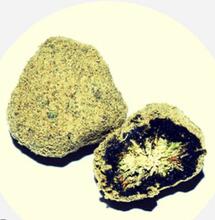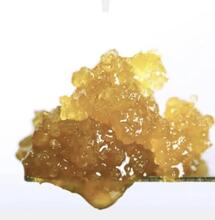The Citrusy Terpene that May Reduce THC-Induced Anxiety

At the proper dose, cannabis has calming effects that can help ease anxiety and help with pain. The right dose however is difficult to define and too much can deliver a dramatically contrasting effect. This is something that recreational users often refer to as paranoia. It can feel like a strong anxiety or panic.
However one of the many naturally occurring aromatic terpenes found naturally in the cannabis plant may help to ease these anxiety-inducing effects. This is by new research that was published recently in Drug and Alcohol Dependence. The conclusions indicate that cannabis strains that contain a high concentration of the citrusy terpene d-limonene, may help some users to evade uneasy reactions and find more benefit from the therapeutic potential of cannabis.
Cannabis plants contain more than 500 chemical compounds. including hundreds of aromatic compounds called terpenes, which give the plant its distinct scent profile. For many years it has been speculated that consuming products made from whole flowers rather than single compounds selectively isolated from the plant, like THC or CBD leads to a better experience for the user. This concept, known as the “entourage effect” arose from experimentations that appeared to demonstrate that whole-plant products delivered a distinct experience in comparison to THC alone.
The idea can be explained using the theory that the whole is greater than the sum of its parts. However, it is still unknown exactly how this effect works, mainly due to the vast amount of chemicals involved. The idea of the entourage effect has had a major impact on how different strains of cannabis are bred and marketed,
Going into the research it wasn't expected that such relatively small concentrations of compounds would have a substantial impact on the overall effects of cannabis. Participants were recruited, who were not regular cannabis users but who had reported experiencing an anxious reaction to it in the past.
The twenty participants underwent nine randomized tests where they inhaled blends of differing levels of either vaporised THC and d-limonene or a placebo made up of a water-vapour placebo.
The study was "double-blind", so neither the participants nor researchers knew which active compounds, if any, the parties received at any point. Following this initial test 12 of the 20 study participants undertook a further test where they were in receipt of even higher doses of d-limonene, alongside THC.
The researchers sampled the participants’ blood several times during each test. Before, directly after and at periodic intervals for six hours after their exposure to the drug, the participants were requested to rank both the effects and their mood. Their vital signs and cognitive performance were also tested.
The scientists discovered that as the d-limonene concentration rose in ratio to THC, the participants registered fewer anxiety symptoms. Except for lessening the participants’ feelings of anxiety or panic, the rise in d-limonene levels didn’t seem to vary any other effects of the THC. Making for a very targeted effect.
Why Does D-Limonene Prevent Anxiety?
Although it is not known exactly why d-limonene might reduce levels of THC-based anxiety, other studies that have been carried out on rodents imply that the chemical may affect the levels of serotonin, dopamine and gamma-aminobutyric acid (GABA) in the brain. It would appear that d-limonene does not directly interfere with how THC acts on the brain, and this is probably why it would not seem to have any impact on the other characteristics of the high.
This study is the first of its type to be carried out, and so of course there are a few key limitations. Test participants were given a vaporised form of cannabis, so it is not known whether the findings will apply to other consumption methods like smoking or edibles.
Further studies may help unravel how terpenes interact with each other. The team behind this latest study is presently conducting similar experiments with other terpenes, including α-pinene and β-myrcene.
Thorough research on the effects of terpenes may potentially lend credibility to some well-known folk remedies for weed-induced anxiety and paranoia, like chewing lemon peels, peppercorns or pine nuts, all of which possess some of the terpenes that are naturally found in cannabis. Citrus fruits have been used as a remedy for the undesired effects of cannabis since back in the 10th century C.E. when the remedy was reported to be used in Persia.
More From Soft Secrets:








